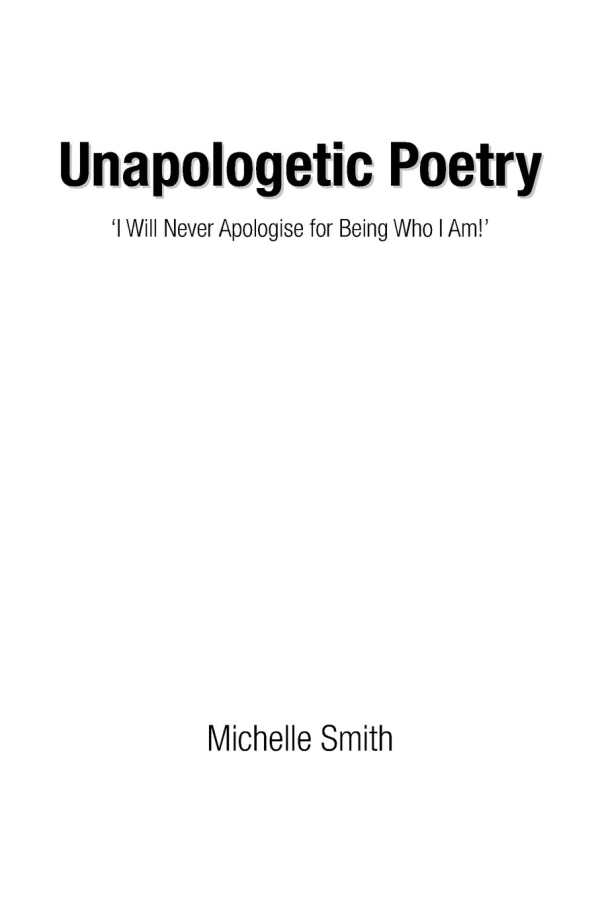Unapologetic Poetry
These are unapologetic, necessary poetic expressions that deliver powerful statements on matters personal and political.
The poems in Michelle Smith’s Unapologetic Poetry touch on a range of subjects and dramatic situations. Most consistently portray speakers who have been subjected to racism, and who voice full-throated obstinacy against it.
The first poem in the collection, “Time to wake up,” is a call to arms. In this statement against racism, the speaker declares, “We are precious and priceless can’t you see that? / Black brothers and sisters, it’s time to wake up!” These lines repeat throughout the piece, as the verses seek to inspire resistance to injustice and to increase awareness of that injustice. It’s a poem reminiscent of Claude McKay’s “If We Must Die,” both in its urgency and its sentiment, as the speaker protests, “They take our culture and our unity too and / behind our backs, they call us coons.”
The vitality of the poems is undeniable, and they have a stark sense of needing to have been written. “My life,” for example, begins with an image of “bruises on her caramel skin sparked black, red and blue”; the poem goes on to describe a harrowing domestic situation involving an abusive, deceitful father.
One of the collection’s stronger poems, “Beyond you,” portrays a kind of dialogue of impressions, as one lover (“A”) regards another (“B”) and remarks upon what he/she sees. “A: He was dark and handsome,” one speaker tells us; “A: He was like golden syrup.” “B: She was black and beautiful,” the other speaker replies; “B: She was like brown sugar melting in a spoon.” This is one of the pieces in Unapologetic Poetry that puts rhyme to good use, seeming to draw the lovers nearer as the poem approaches its end: “A: He called her a rose. / B: She called him toffee. / A: He called her spice, so she called him coffee.”
While some of the rhyming is clever, as with “toffee / coffee,” many of the rhymes work against the needs of the poems in which they appear. One of the stanzas in “HOW DARE YOU!” reads, “HOW DARE YOU talk down to me! Like you are of high esteem! / Walking, snorting, strutting with pride—put your head down low! / Go run and hide.” Smith’s poems are at their best when they push forward with a sense of urgency; the rhymes as she has composed them often work against that momentum. A number of the pieces seem oversimplified, like “Falling in love,” which is only four lines and culminates with “Hey baby! I’m falling in love.”
The poems in Unapologetic Poetry are precisely what the volume’s title promises: unapologetic, necessary poetic expressions that deliver powerful statements on matters personal and political.
Reviewed by
Robert Foreman
Disclosure: This article is not an endorsement, but a review. The publisher of this book provided free copies of the book and paid a small fee to have their book reviewed by a professional reviewer. Foreword Reviews and Clarion Reviews make no guarantee that the publisher will receive a positive review. Foreword Magazine, Inc. is disclosing this in accordance with the Federal Trade Commission’s 16 CFR, Part 255.

